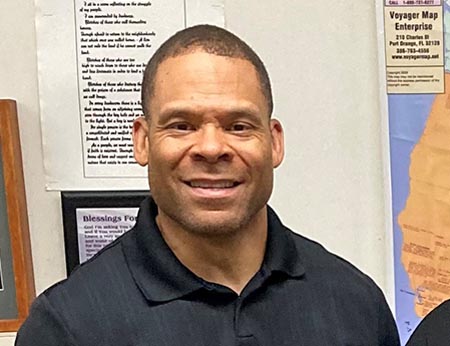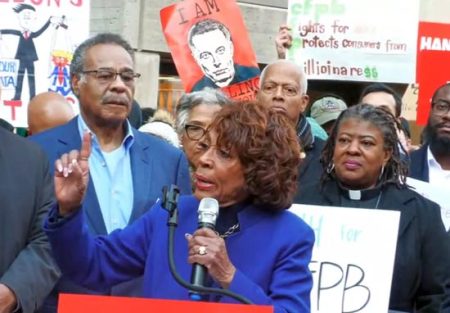‘Hey – Can I Get That Job?”’
The Growing Need To Find Employment
by Moe White
Nobody said it would be easy. Finding a job, starting a career, or getting back on your feet during the longest, deepest, and most devastating recession in seventy years is, in a word, tough. And since Ronald Reagan’s election in 1980, the ruling elite (read the Republican ascendancy) has slashed the “safety net” to shreds, making it harder not only to find a job, but to survive without one.
The safety net for the poor and unemployed used to include welfare (Aid to Families with Dependent Children) and unemployment benefits that reflected the real cost of living; the one for working people included such “quaint” rules as a minimum wage, unions, and reasonable job and retirement security. But attacks against “welfare queens” and “welfare Cadillacs” changed all that; leveraged buyouts cashed out pension funds and eliminated millions of jobs; and welfare – what Reagan called “government handouts” – became a benefit only for corporations and the richest 5 percent of the population who run them (often into bankruptcy).
So where does that leave you? In the middle of a scrimmage to keep
your head above water, a scrimmage in which more people every day are
joining the ranks of the unemployed. The good news is that unemployment
grew by “only” a quarter of a million people last month, compared with
three-quarters of a million monthly during the twilight of George W.
Bush’s administration. But that’s still 243,000 more people to
scrimmage with every month in your search for jobs. So how do you reach
the goal line?
Who knows you?
There’s an adage that “It’s not what you know, it’s who you know.” The
better question is “Who knows you?” and it points up one of the
problems many African American workers face: not knowing the right
people. It’s not a question of racial bias, but of contacts; how many
business owners do you know, and how many of them are in a position to
offer you a job?
Do community leaders know you well enough to give you a good
reference? Is a banker or corporate manager or retailer willing to put
in a good word with her colleagues, or hire you himself? Do you reach
out to potential employers at church or through family ties or
long-time friends? Who you know – and who knows you – makes a
difference not just when you’re actively seeking work, but when friends
hear of a job opening and, because they know you, put you and the
employer in touch.
The ties that bind
Communities have always stuck together to help each other out in good
times and bad. The majority WASP community has taken care of its own
since arriving on the Mayflower, and later immigrant groups – the
Irish, Chinese, Italians, Jews, Greeks, and others – have long done the
same. Today’s immigrants, mostly Hispanics and, in WNC, Ukrainians,
also network among themselves to keep their heads above water, and as
with all their predecessors, common language and culture and customs
and foods help keep the bonds strong.
If one person finds a job and works hard, and the boss asks if
he knows anyone else looking for work, naturally he’ll recommend his
friends – and feel at least some responsibility for their performance.
Certainly the black community did the same during the slavery
years and after. Neighbors looked after each other, family stepped in
to help, the “villages” – like Shiloh and Stumptown – were themselves
community resources that everybody drew from and contributed to. So
what happens when two communities are desperate for the same jobs, many
of which are low-wage? When minority communities are also competing
against the well-connected majority? When so much power has passed to
employers that supply and demand creates a wage race to the bottom –
who is more desperate, who will work for the least amount?
Getting to know you
The worst choice is to resent the other group instead of strengthening
your own. The best option is to make the case for you, yourself, as
well as for other people you know in the community. Find out where
employers spend their time, and join them, get to know them, give them
an opportunity to know you. Participate in the church, with elders,
with community leaders, by volunteering, being useful and willing and
eager to help.
Find out where you fit in, and if you don’t fit in, find out
why! Ask an elder what to do to become a resource for others – that is,
give to the community before trying to take from it. Listen to what the
elders say, learn from them, and be ready to walk through as soon as
somebody opens a door.








